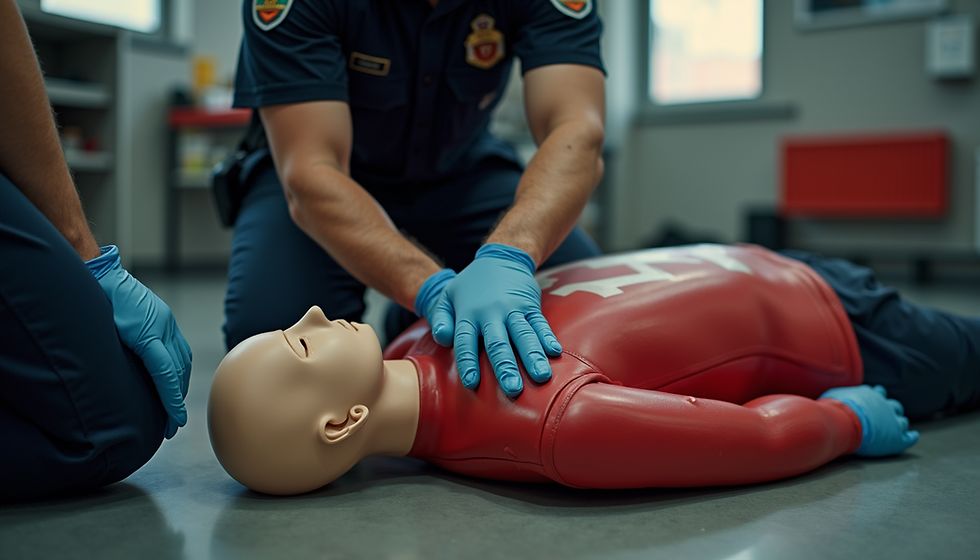A Week of Sirens, Shelters, and Strength: Life in Israel This Week
- Yoni Ari
- Jun 21
- 4 min read
Last week, we were woken up in the middle of the night by the first siren of the war between Israel and Iran. You never forget a siren like that, it cuts through your sleep, your thoughts, your sense of safety. It shakes you awake not just physically, but emotionally too.
Since that night, I’ve been to the shelter more times than I can count. Some nights, I just crawl into bed after a long day, and 30 minutes later, I get the notification: get ready to go to the shelter. A few minutes after that, the siren wails, and we rush in again. It always comes suddenly. It always catches you by surprise.

At our home, we host neighbors who don’t have their own shelter. When the sirens sound, they rush to us in the dark. Over time, we’ve developed a strange kind of routine, we sit in our usual spots, turn on the TV, swap updates, and even share jokes. War doesn’t stop Israelis from making each other laugh. Maybe it’s how we stay sane. Maybe it’s how we stay human.
My day-to-day is stretched between family and work, worry and purpose. One of my daughters is serving in the army. Another daughter, who lives in Jerusalem and studies in college, came back home and is now learning over Zoom. My son missed his high school graduation, which was canceled because of the war, and is preparing to enlist in the army. And I spend my days working with communities to build their resilience in the face of crisis. Each day feels endless.

This war feels different. The rockets are bigger. The damage is worse. You’ve probably seen the images on TV, but you didn’t hear the sound. When the defense systems intercept a missile, there’s a deep, thunderous boom that shakes the whole house. You feel it in your chest. And when I’m out, I’m constantly looking for shelter, always scanning for the nearest safe place.
Not everyone in Israel has a shelter at home. Only houses built after 1984 are required to include one. So many people rely on public shelters, which quickly fill up. They’re hot, there’s no air conditioning, and no internet connection. Families with young children often choose to sleep there overnight, just to avoid the constant middle-of-the-night panic.

And still, Israelis rise to the moment. People opened their homes within hours. They brought fans to shelters. Some even figured out ways to bring in mobile internet. We support each other, neighbors, strangers, anyone in need. And when one parent gets called up for reserve duty, others step in to help with the kids. Just imagine trying to care for two toddlers 24/7 under these conditions, and yet, people do it.
But it goes deeper than spontaneous acts of kindness. In Israel, every community has an Emergency Response Team. These are volunteers—ordinary people with day jobs, who train specifically for emergencies like this. They aren’t waiting around for the government or the army. They’re taking responsibility for their communities.
In my own community, and in many others, I’ve helped train through my work. These volunteers are the first line of organized support. They’re the ones sending out messages to residents when an alert is issued. They coordinate with local shelters, making sure vulnerable populations, like elderly residents or people with disabilities, have the help they need to get to safety. They stay in contact with first responders if something goes wrong. Some have been trained to provide first aid, while others have even been trained in search-and-rescue techniques in the event of a building collapse.

That’s what makes Israeli society so uniquely resilient. Everyone knows their role. From local leadership down to the smallest child, there is a deep sense of responsibility and preparedness. Kids know how to get to the shelter on their own. Seniors know who to call if they need help. There’s a built-in culture of readiness that has grown out of necessity, but also out of care.
It’s not easy. It’s exhausting. But it’s also powerful.
Every day, I see how strong our communities are, not because they don’t feel fear, but because they act in spite of it. We may be tired, but we’re not broken. We hold each other up. And that’s the true meaning of resilience.
What can we learn from the Israelis?
The power of community during crisis
How to build a culture of preparedness
That resilience is a learned skill
The importance of knowing your role in an emergency
Why Support JEPP? At JEPP, we take the same resilience and preparedness you just read about and bring it to Jewish communities across the U.S. We train volunteers, build emergency plans, conduct vulnerability assessments, and help institutions apply for security grants—so they can be ready when it matters most. Your donation helps us reach more synagogues, schools, and camps with life-saving tools and training.
In Israel, resilience is a way of life. With your support, we’re making it a reality for Jewish communities everywhere.







Comments